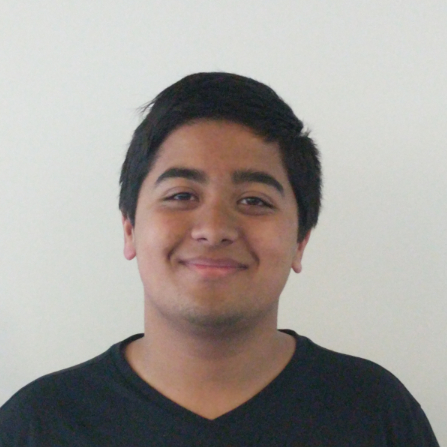This 1-credit seminar is designed to teach the essentials of using a computer effectively for EECS students. While the target audience is CS/CE/DS students, any student wishing to learn how to use their computer much more effectively is encouraged to join. Topics covered include shells, environment, scripting, build systems, compilers, debugging tools, and version control. The end of the course will be open to student input for interesting topics to cover.
Updates
Course Pre-Requisites
The only enforced pre-requisite for this course is ENGN 101/151 or EECS 182/183, however it is strongly advised that students have either taken or are concurrently enrolled in EECS 280.
It is expected that students are currently enrolled in at least one course involving non-trivial software projects (e.g. EECS 280 or 281). If you are not enrolled in a programming course this term, you must have previously taken a programming course where you still have access to the projects you have completed.
Syllabus & Essential Info
Course Staff
For general issues, e-mail the course staff at c4cs-staff@umich.edu. For sensitive issues, please e-mail Marcus directly.
 |
 |
 |
 |
 |
|
| Marcus Darden | Samiur Khan | Christina Liu | Amrit Hariharan | Stevie Triesenberg | Tarun Khubchandani |
| mmdarden@umich.edu | samkhan@umich.edu | cyanliu@umich.edu | amrith@umich.edu | sltries@umich.edu | tarunsk@umich.edu |
Course Resources
Course Q&A / Forum – Piazza
Assignment Submission & Grades – Gradescope
- Gradescope entry code:
MBBY38
To borrow a CSE laptop for the semester, contact Don Winsor at don@umich.edu.
Course Meeting Time and Location
- Section 002 (26357)
- 1670 BEYSTER, Friday 2:00PM — 3:30PM
- Section 003 (33882)
- 1013 DOW, Friday 10:30AM — 12:00PM
Schedule
| Topic | Lecture Materials | ||
|---|---|---|---|
| Segment 1: Introduction and Basics | |||
| Week 1 | 09/07/2018 |
Introduction, Virtual Machines, & Command Line Primer Lecture
Homework
Advanced
|
B1G TEN Commands |
|
mmdarden |
|||
|
|
|||
| Week 2 | 09/14/2018 |
Basic Git Lecture
Homework
Advanced
|
Later in the term we will analyze how you have been using git and how you may improve. It is important that you have at least one non-trivial project (e.g. a class project) that you have used git to maintain. B1G TEN Commands |
|
mmdarden |
|||
|
|
|||
| Week 3 | 09/21/2018 |
Shells, Environment, Scripting, and Bash Lecture
|
B1G TEN Commands chmod ● man ● file ● echo ● seq ● true ● which ● export ● yes ● $_ ● $variable ● history ● grep |
|
mmdarden |
|||
|
|
|||
| Being Efficient | |||
| Week 4 | 09/28/2018 |
Editors Lecture
Homework
Advanced
|
Every developer has their own go-to editor that they’ve configured and are familiar with (try talking to each of the staff - it may cause quite a debate). It doesn’t necessarily matter what you use as long as you’re comfortable with it, though it is definitely beneficial to know at least one Terminal-Based Text Editor. B1G TEN Commands |
|
mmdarden |
|||
| Week 5 | 10/05/2018 |
Unix II Lecture
Homework
Advanced
|
NOTE: Due to the last-minute room shift, there is no recording for the morning lecture that took place in 1571 GGBL. B1G TEN Commands |
|
mmdarden |
|||
| Week 6 | 10/12/2018 |
Git II Lecture
Homework
Advanced
|
Use this page to find out the command you’ll be writing documentation for if you do the advanced hw. Some tips and tricks to make working with git more enjoyable. Git II OH++ will be held on Tuesday, October 16th 2018 in 1013 DOW from 9am-10:30am B1G TEN Commands |
|
mmdarden |
|||
| Week 6b | 10/16/2018 |
Office Hours ++ (Git II) Lecture
|
Attendance is completely optional! If you come, we’ll be helping you through Advanced Homework 6 and covering some additional Git related awesomeness. |
|
staff |
|||
|
No homework this week! |
|||
| Developing | |||
| Week 7 | 10/19/2018 |
Build Systems |
|
|
mmdarden |
|||
| Week 8 | 10/26/2018 |
Unit Testing and Python |
|
|
mmdarden |
|||
| Week 9 | 11/02/2018 |
Debuggers |
|
|
mmdarden |
|||
| Standing on the Shoulders of Giants | |||
| Week 10 | 11/09/2018 |
Package Managers & Development Environment |
|
|
mmdarden |
|||
| Week 11 | 11/16/2018 |
IDEs |
|
|
mmdarden |
|||
| Week 12 | 11/23/2018 |
No lecture, Thanksgiving break |
|
|
mmdarden |
|||
| Week 13 | 11/30/2018 |
A Sampling of Other Things |
|
|
mmdarden |
|||
| Week 14 | 12/07/2018 |
TBA - Staff |
|
|
mmdarden |
|||
Attendance, Grading, and Homework
This course is graded on a straight scale, it will not be curved. There are a total of 100 possible points in this course. You are expected to earn 40 points from Homework, 30 points from Attendance and Participation, and 30 points from Advanced Exercises, however each section has modest opportunity for extra credit that can cover missing points elsewhere.
As the semester progresses, if you'd like to see how you're doing you can enter your scores into this table.
Range notation [90,93) means 90 is included and 93 is not
Final Grades
| A+ >100 |
A [93,100] |
A- [90,93) |
B+ [86.7,90) |
B [83.3,86.7) |
B- [80,83.3) |
C+ [76.7,80) |
C [73.3,76.7) |
C- [70,73.3) |
D+ [66.7,70) |
D [63.3,66.7) |
D- [60,63.3) |
F [0,60) |
|---|
Homework (40% / 40 points)
There are 12 homework assignments in the course. Each homework assignment is worth 4 points. Any points over 40 points are worth half their value, that is if a student completes all 12 assignments with a perfect score, their total points earned from homework will be 40 + (0.5×8) = 44.
Late assignments will not be accepted. Notice that one can miss/skip up to two assignments and still receive the full 40 homework points.
Homework Effort and Grading
This is a 1 credit course and the homeworks are designed to be commensurate with that. Each assignment should take 60–90 minutes on average. The goal of the homeworks is to reinforce concepts introduced in lecture and to give hands-on experience.
We will give each homework a “raw” grade in Gradescope, which will then convert to a final score using the following conversion:
- [0,0.25] → 0 points
- No / very little effort
- (0.25,2] → 2 points
- Some effort, but not quite there
- (2,4] → 4 points
- Solid effort, completed successfully
The idea here is that homework does not have to 100% perfect to receive full credit. In addition, course staff can be a little “nit-picky”, taking off tenths of points to draw your attention to corrections and suggestions without actually penalizing your grade.
Grading Issues / Regrade Requests
Regrades are handled on Gradescope. We will close regrade requests roughly one week after assignments are returned.Attendance and Participation (30% / 30 points)
Attendance is required for this course. Bring your laptop to every lecture. Lectures will include some quick quizzes used both to verify comprehension and attendance. Generally, correct answers will be worth full credit and incorrect answers half credit (you were there, but didn’t get it right). Generally, we will ask at least three questions during class. Not all questions may count for attendance credit. We reserve the right to experiment with this mechanism a bit throughout the semester and vary when and how we ask questions or validate attendance.
Each week can earn up to 3 attendance and participation points. Any points over 30 points are worth half their value, that is if a student attends and participates for all 12 weeks, their total points earned from attendance and participation will be 30 + (0.5×6) = 33.
Notice that you can miss up to two weeks without any penalty. This is by design to accommodate unexpected illness, emergencies, travel for interviews, or any other situations. Please do not ask for excused absences for one-off issues that are already covered by this policy. If extenuating circumstances cause you to miss more than two weeks, please contact us and we can work something out.
We will not count attendance for the first week of class.
Advanced Exercises (30% / 30 points)
Each week (except the first and last) will have at least one advanced exercise option. The intention is to give a guided exploration of topics that people find most interesting. These advanced exercises will also be a little more time consuming (2-3 hours), have a little less guidance, and require you to research and discover a little on your own. Over the course of the semester, you are expected to do three of the advanced exercises.
Advanced exercises may only be submitted at office hours, which can be viewed from the course calendar at the top of the page. Advanced exercises come with a deadline roughly two weeks after they are released, however it is your responsibility to ensure you select an office hours session to attend before the deadline.
We will aim to announce any changes to the regular office hours schedule at least one week in advance (via Piazza and the updated course calendar), however sometimes life happens, in which case we may adjust deadlines if necessary.
Advanced Exercises Grading
The advanced exercises are graded on a simple all or nothing system, either you did the whole thing or you did not.
The class is divided into four sections, Introduction and Basics, Being Efficient, Developing, and Standing on the Shoulders of Giants. To encourage you to get started early and spread the advanced exercises load across the semester, the first advanced exercise you submit from each section is worth 10 points. Another advanced exercise in the same section is worth 5 points. If you do one advanced exercise from each section, the final section's first advanced exercise is worth half: 5 points. If a student completes all 11 advanced exercise, they will earn (10 + 5) + (10 + 5 + 5) + (10 + 5 + 5 ) + (5 + 5 + 5) = 70 points.
Completing advanced exercises 2 or more days prior to the due date will result in 2 extra credit points being awarded for the assignment. Completing advanced exercises 1 day prior to the due date will result in 1 extra credit point being awarded for the assignment.
Engineering Honor Code
To review the current Engineering Honor Code, refer to the Honor Council page on the Office of Student Support and Accountability website.